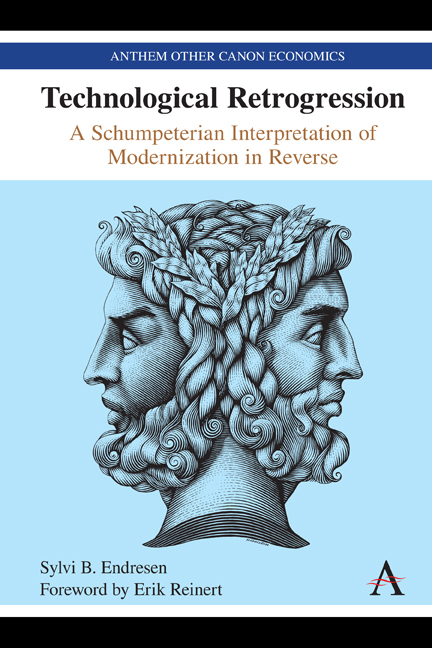Book contents
- Frontmatter
- Dedication
- Contents
- List of Figures
- Foreword
- Acknowledgements
- Preface: The Book within This Book
- Introduction: The Concept of Technological Retrogression
- 1 Challenging Linearity and Irreversibility
- 2 Perspectives on Technological Heterogeneity
- 3 Production Systems and Work Histories
- 4 Empirical Evidence of Technological Retrogression: The Sri Lankan Case
- 5 Empirical Evidence of Technological Retrogression: The Malaysian Case
- 6 A Theory of Technological Retrogression
- References
- Index
5 - Empirical Evidence of Technological Retrogression: The Malaysian Case
Published online by Cambridge University Press: 17 June 2021
- Frontmatter
- Dedication
- Contents
- List of Figures
- Foreword
- Acknowledgements
- Preface: The Book within This Book
- Introduction: The Concept of Technological Retrogression
- 1 Challenging Linearity and Irreversibility
- 2 Perspectives on Technological Heterogeneity
- 3 Production Systems and Work Histories
- 4 Empirical Evidence of Technological Retrogression: The Sri Lankan Case
- 5 Empirical Evidence of Technological Retrogression: The Malaysian Case
- 6 A Theory of Technological Retrogression
- References
- Index
Summary
Poverty and inequality
My second empirical investigation of technological retrogression is presented in this chapter. Malaysia was selected after I studied (in the FAO library in Rome) descriptions of fishing societies and boat statistics of several Asian countries. Other candidates were India, Indonesia and The Philippines. Considerable ‘traditional sectors’ were found in all contexts, but no evidence of technological retrogression could be traced. This did not deter me; the process is invisible in statistics. Thus, the danger of zero case was there when I started fieldwork. Among Malaysian scholars and in the ministries, there were no awareness to this phenomenon, so moving from Kuala Lumpur to Kedah was a journey into the unknown! As with the Sri Lankan case, I should warn you that the empirical material has been abbreviated, and nuances and details are lost. A full description can be found in Endresen (1995). I will stress once more that the work history method is labour intensive; this fieldwork as well lasted about a year. I did not update this study either but moved on to explore different contexts and problems. This Malaysian snapshot is thus more than 30 years of age.
The empirical investigation of technological change in Malaysian fisheries was undertaken in the late 1980s. Already, at that time, substantial economic growth due to a flourishing manufacturing industry had placed Malaysia among the Newly Industrializing Countries. But fisheries were considered a backward sector by Malaysian social scientists, who pointed at a high incidence of poverty and great income inequalities (Yahaya 1978; Munro and Chee 1978; Ling 1978a; Fredericks and Wells 1980; Yahaya and Wells 1982; Jomo 1991). Poverty in Malaysia was mainly a rural phenomenon, and the four northern states (of which Kedah is one) had above average incidence of poverty (Anand 1983). Poor fishing households were the fifth largest poverty group in Malaysia after rubber smallholders, paddy farmers, agricultural labourers and estate workers (Jomo 1991). Although technological modernization led to economic growth in fishing villages, the subsequent gains were distributed unevenly. Widened income differential between the West Coast trawler fishermen and traditional artisanal fishermen was also found by Fredericks and Wells (1980). A survey by The Malaysian Fishermen's Network concluded that nearly 73 per cent of the coastal fishermen were poor (Yusuf 1988).
- Type
- Chapter
- Information
- Technological RetrogressionA Schumpeterian Interpretation of Modernization in Reverse, pp. 139 - 188Publisher: Anthem PressPrint publication year: 2021



